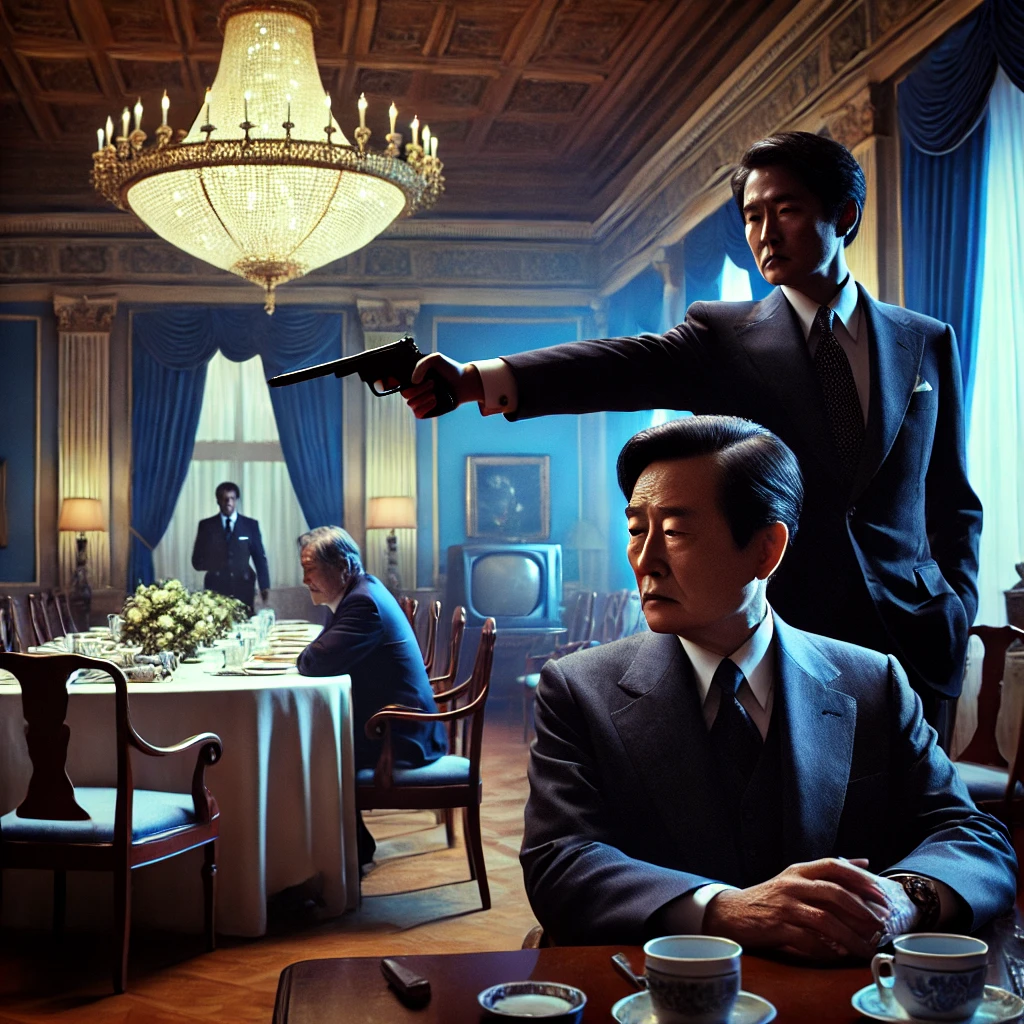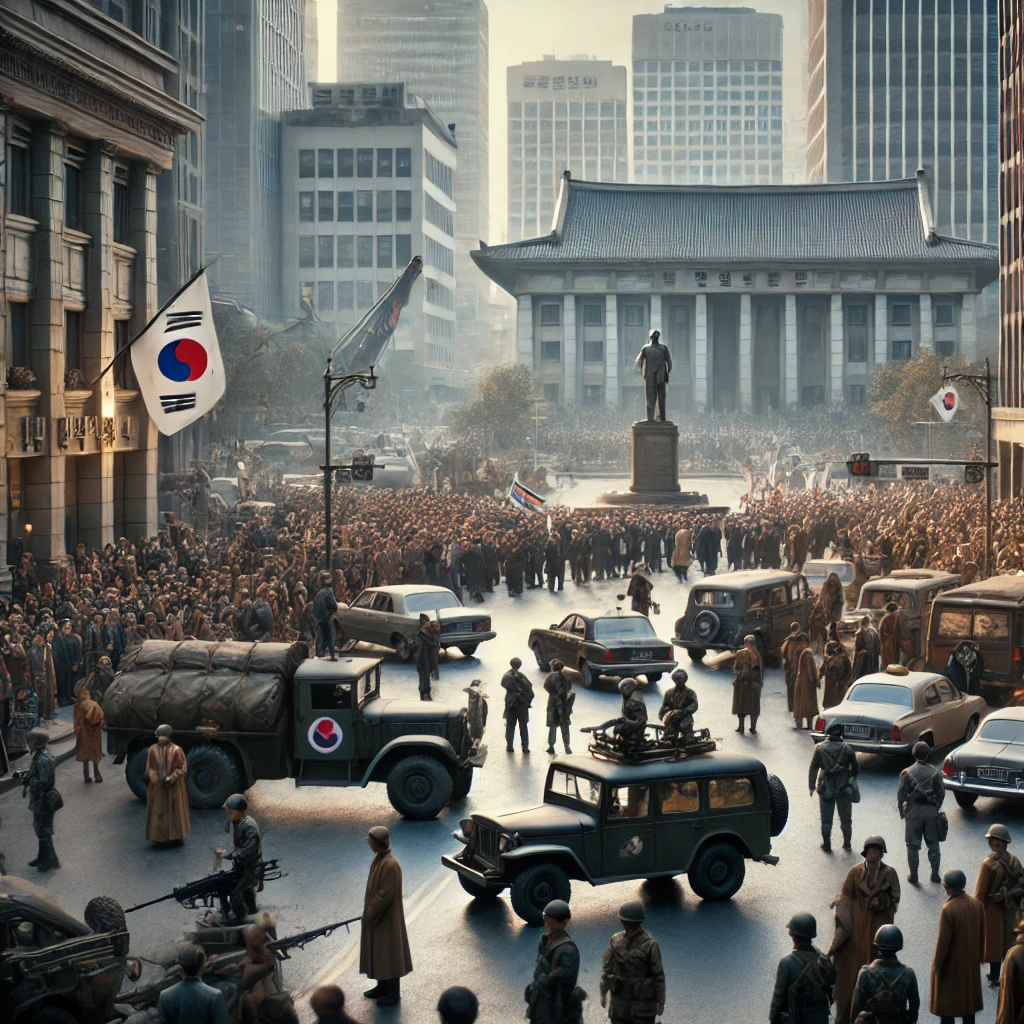On October 26, 1979, South Korea was shaken to its core as President Park Chung Hee was assassinated by Kim Jae Kyu, the head of the Korean Central Intelligence Agency (KCIA) and a long-time friend. This shocking event not only marked the end of Park’s 18-year authoritarian rule but also plunged the country into a period of uncertainty and upheaval, with far-reaching implications for South Korea’s political landscape.

The Rise of Park Chung Hee
Park Chung Hee rose to power in 1961 after a military coup, establishing himself as a dominant figure in South Korean politics. Initially, he was viewed as a stabilizing force, promoting rapid industrialization and economic growth, often referred to as the “Miracle on the Han River.” Under his leadership, South Korea transformed from a war-torn nation into one of the world’s emerging economies, fostering an environment of modernization and development.
However, Park’s regime was also marked by political repression and human rights abuses. He implemented a series of authoritarian measures, including the suppression of dissent, censorship of the press, and the curtailment of civil liberties. As opposition to his rule grew, many South Koreans began to resent the increasingly dictatorial nature of his government, leading to a climate of fear and unrest.
The Assassination
The assassination took place during a private dinner at the Blue House, South Korea’s presidential residence. Tensions between Park and Kim Jae Kyu had escalated over the years, fueled by the growing discontent within the country and the perceived failures of the regime to address pressing social issues. On that fateful night, during an altercation, Kim shot Park, leading to his immediate death and creating a power vacuum at the top of the government.
In the aftermath of the assassination, Kim Jae Kyu was arrested, tried, and sentenced to death for his actions. His motivations for the assassination remain a topic of speculation, with some suggesting that he was driven by a desire to prevent the potential further decline of South Korea under Park’s increasingly repressive rule. The assassination of a long-standing ally and confidant sent shockwaves through the political establishment and raised questions about loyalty, power, and the future of South Korea.

The Aftermath and Political Implications
Park’s assassination marked a turning point in South Korean history, leading to a period of political instability and uncertainty. Following his death, there were power struggles within the military and government, as various factions vied for control. The assassination also catalyzed the pro-democracy movement in South Korea, as citizens increasingly demanded political reform and an end to authoritarian rule.
The chaos that ensued ultimately culminated in the establishment of a new military government, led by General Chun Doo-hwan, who would maintain power through similar authoritarian means. This shift in leadership underscored the fragility of democracy in South Korea and the continued influence of military power in politics.
The Legacy of Park Chung Hee
Park Chung Hee’s legacy remains complex and contentious in South Korea. While he is credited with initiating economic development and modernization, his authoritarian rule and human rights abuses have left a lasting scar on the nation’s collective memory. The assassination marked the beginning of a more open political discourse, as South Koreans began to demand accountability and reform from their leaders.
In the decades following Park’s death, South Korea underwent significant political changes, transitioning from military rule to a democratic government in the late 1980s. The pro-democracy movements that gained momentum in the wake of his assassination played a crucial role in shaping the nation’s political landscape, ultimately leading to the establishment of a more democratic and open society.
Conclusion
The assassination of President Park Chung Hee on October 26, 1979, marked a pivotal moment in South Korean history, ending nearly two decades of authoritarian rule and setting the stage for significant political changes. While Park’s legacy is a subject of debate, his death highlighted the complexities of power, loyalty, and governance in a rapidly evolving nation. As South Korea continues to navigate its path as a democratic society, the events surrounding Park’s assassination serve as a reminder of the struggles for freedom, justice, and the enduring quest for a better future. The legacy of this significant moment continues to shape the narrative of South Korea’s history and its ongoing pursuit of democratic values.
